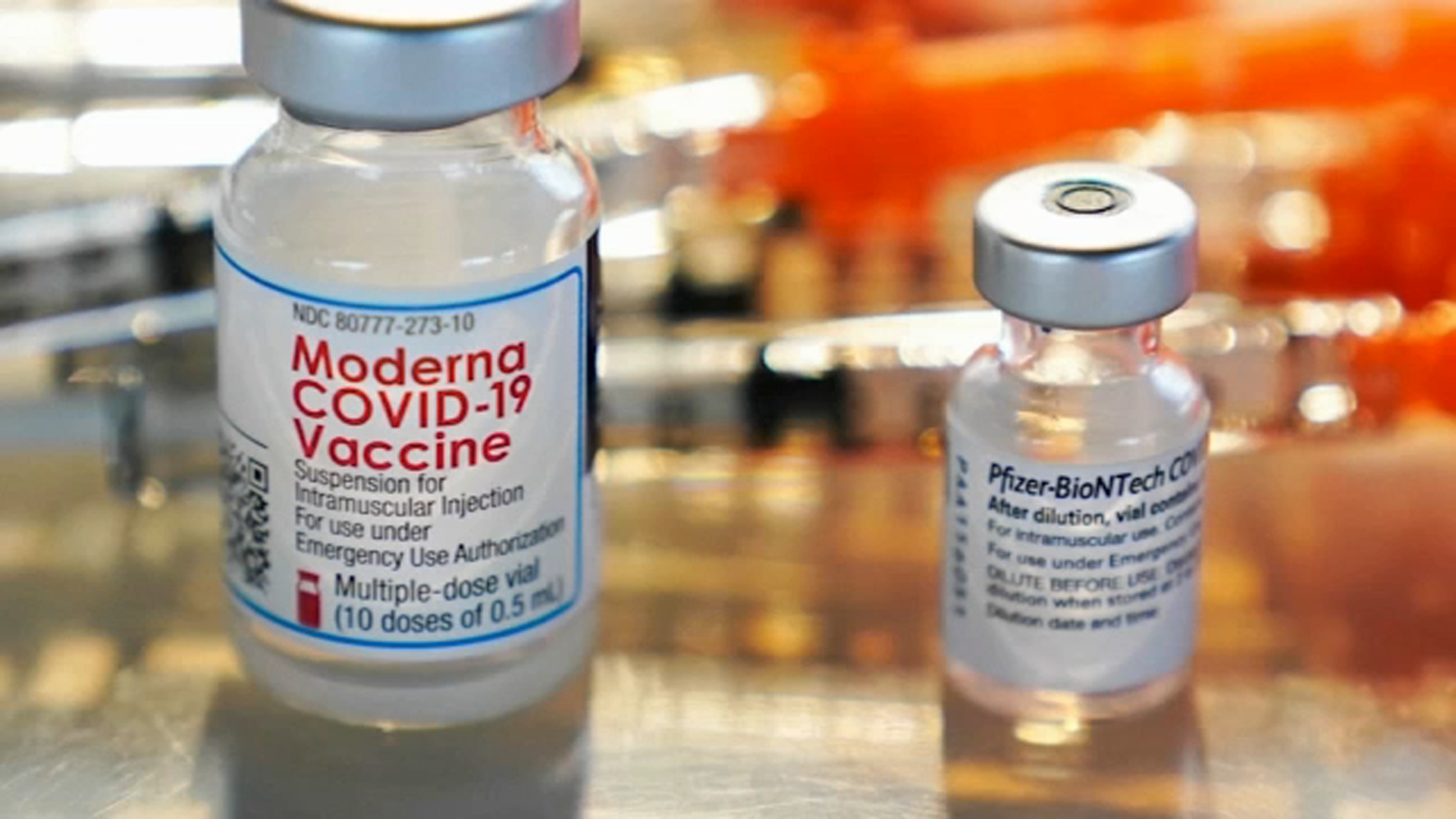Is NC ready to ditch mask mandates? Local officials respond as COVID metrics fall
RALEIGH, N.C. (WTVD) -- North Carolina's daily percentage of COVID-19 positive tests dipped to below 5% this week for the first time in three months.
Five percent is a range that many health officials have used as a benchmark for low transmission. Both Durham and Wake Counties have reported even lower averages during the past two weeks (3.1% and 3.8%).
Other COVID-19 metrics are following a similar trend with 18% fewer patients hospitalized and 5,300 fewer cases reported this week than last.
As the outlook improves, many are questioning whether local officials will loosen restrictions, including mask mandates.
MORE: CDC expands COVID booster rollout with Moderna and Johnson & Johnson doses, OKs mixing shots

The statewide mask mandate was lifted in May after North Carolina reported a 5.1% daily average over two weeks for positive COVID-19 tests.
Right now, the state is reporting an average of 6.3% of COVID-19 tests coming back positive over the last two weeks.
In addition, 700 more people are hospitalized, and the daily case average is 83% higher compared to mid-May, when Gov. Roy Cooper dropped most masking requirements.
The ABC11 I-Team reached out to local municipalities to see if they had plans to change restrictions and what metrics need to reach to make changes.
Cary Mayor Harold Weinbrecht said the town is planning to make a decision about its mask mandate on Monday after reviewing the latest data.
"If we decide to continue, then we will decide how long before the next decision point. Preliminary data shows that many of the numbers put us back to where we were in early August. It is my hope that these numbers will continue to improve, and we can end our State of Emergency by the end of October," Weinbrecht wrote to the I-Team.
SEE ALSO: Raleigh woman who survived H1N1 flu, COVID-19 encourages both vaccines

Garner and Knightdale plan to follow Wake County's lead. Its mask mandate is set to expire on Nov. 1. A spokesperson for Wake County said leaders continue to monitor local and federal trends and plan to reevaluate restrictions in the coming weeks.
"The Mayor and City staff members are pleased to see a downward trend of COVID cases and hospitalizations throughout Cumberland County. We will support continued efforts to educate residents about who's eligible for boosters. We also want to support future decisions that could provide vaccination options for children in the community," wrote a spokesperson for Fayetteville.
In Durham, a city spokesperson said no decision has been made and leaders continue to monitor daily metrics and follow Centers for Disease Control and Prevention guidelines. Raleigh's mayor wasn't available for comment on Friday.
MORE: White House details plan to roll out COVID vaccines for younger kids

A spokesperson for Orange County said the mask mandate will stay in place for the foreseeable future.
"We're concerned that the flu season is coming up and there are other respiratory issues that will be floating around when the weather gets colder, people will be indoors more. So, you know, for those reasons it was likely that we're going to keep the mask mandate in place, at least for a little while longer," Todd McGee, the county's spokesperson, told ABC11.
While metrics fall across North Carolina, they haven't dropped to a level to meet the CDC's requirement for removing masks indoors.
The CDC's transmission map shows mostly all of North Carolina is red, which indicates high COVID-19 transmission. Only about 10 counties have slightly lower transmission levels at "substantial," including Orange, Chatham and Person County.
CDC COVID-19 Transmission Levels by U.S. County
Map not displaying correctly? Click here to open in a new window.
According to CDC recommendations, it is only safe to remove a mask indoors in counties that have moderate to low transmission rates. Moderate to low transmission rates means an area has an average positivity rate below 8% and fewer than 50 new COVID-19 cases per 100,000 people in the last week. Currently, no North Carolina counties meet that criteria.
McGee said officials in Orange County are being mindful of the children who are not yet eligible for vaccination.
"We have to be able to protect them and then also, we want to make sure that we don't create any undue stress on hospitals. They struggle with the caseloads as they come and go. We want to try to do what we can to make sure that those folks can get a break and don't get inundated with cases from the flu and the COVID," McGee said.










